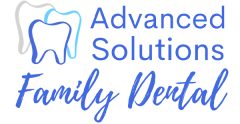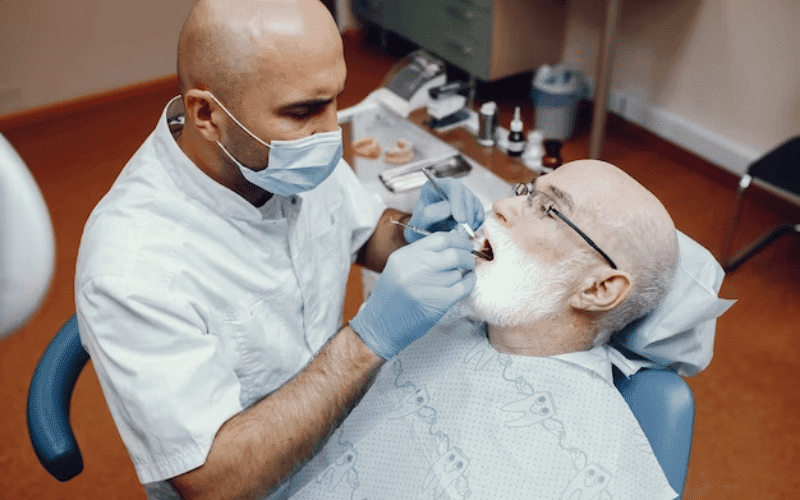In a world where first impressions are everything, your grin speaks volumes about your confidence. Dental flaws, on the other hand, might dull that ray of hope. Enter the world of restorative dentistry, a transformational adventure beyond simple restorations. This is about more than just teeth; it is about revitalizing your essence. Consider a bright grin that improves dental health and is a strong tool for improving self-esteem. Let us dig into the beauty of restorative dentistry, where each operation is a brushstroke that creates a perfect smile and a restored sense of self-worth and confidence.
The Impact Of Dental Issues On Self-Esteem
1. Aesthetic Concerns:
Dental issues, such as discolored teeth, misalignment, or missing teeth, can significantly impact an individual’s perception of their appearance. Aesthetic concerns related to one’s smile can lead to self-consciousness, making individuals hesitant to smile or engage in social interactions, ultimately affecting their self-esteem.
2. Social Anxiety:
Dental problems may contribute to social anxiety, as individuals with oral issues may fear judgment or negative reactions from others. This fear can result in avoidance of social situations, leading to isolation and a diminished sense of self-worth, as the individual may feel embarrassed or ashamed of their dental condition.
3. Communication Challenges:
Oral health problems can create communication challenges, especially those affecting speech or causing bad breath. Individuals may avoid speaking openly or participating in conversations due to concerns about how others perceive their dental issues. This can limit their ability to express themselves, impacting their confidence and self-esteem.
4. Professional Implications:
The impact of dental issues extends beyond personal interactions to professional settings. Individuals with visible oral health problems may feel self-conscious during job interviews, meetings, or other professional engagements. A lack of confidence in one’s appearance can hinder career advancement and opportunities, negatively impacting self-esteem.
5. Psychological Distress:
Chronic dental issues, especially those causing pain or discomfort, can lead to psychological distress. Constant pain or the fear of worsening oral health can create a persistent sense of unease and anxiety. This ongoing stress can erode an individual’s overall mental well-being, affecting their self-esteem and ability to cope with daily challenges.
Addressing dental issues through proper oral care and seeking professional help improves physical health and can positively impact an individual’s self-esteem, enabling them to approach life with greater confidence and a more positive self-image.
The Psychological Impact Of Dental Issues On Self-Esteem:
1. Negative Body Image:
Dental issues, such as crooked or discolored teeth, can contribute to a negative body image. Individuals may become fixated on perceived flaws in their smiles, leading to heightened self-consciousness and a negative perception of their overall appearance. This can significantly impact self-esteem, as the individual may feel dissatisfied or embarrassed about their dental condition.
2. Social Withdrawal:
The psychological impact of dental problems often leads to social withdrawal. Individuals may avoid social situations, including gatherings with friends or family, out of fear of being judged or ridiculed for their dental issues. This withdrawal can contribute to feelings of isolation and loneliness, further impacting self-esteem.
3. Teasing and Bullying:
Visible dental issues can make individuals susceptible to teasing or bullying, especially during childhood and adolescence. The psychological distress resulting from such negative experiences can have long-lasting effects on self-esteem. The fear of being mocked or stigmatized for their dental condition may persist into adulthood, influencing how individuals perceive themselves.
4. Comparison with Social Norms:
Society often emphasizes specific standards of beauty and perfection, including a bright and straight smile. Individuals with dental issues may compare themselves unfavorably to these societal norms, leading to feelings of inadequacy and a diminished sense of self-worth. This constant comparison can be a source of ongoing psychological distress.
5. Impact on Personal Relationships:
Dental issues can affect personal relationships, both romantically and socially. Fear of judgment from others may hinder the development of close connections, and the perceived unattractiveness resulting from dental problems can impact romantic relationships. These challenges in forming and maintaining relationships can contribute to a negative cycle of low self-esteem.
It’s essential to recognize the psychological impact of dental issues and address oral health’s physical and emotional aspects. When necessary, seeking professional dental care and psychological support can help individuals regain confidence and improve their self-esteem.
Understanding Restorative Dentistry:
The primary goal of restorative dentistry is to repair damaged teeth or replace missing teeth so you can keep a healthy, functional smile. It includes operations performed by general dentists, such as fillings, crowns, bridges, dentures, and implants.
Restorative dentistry procedures are classified into the following categories:
1. Fillings For Teeth:
Individuals with minor cavities might consider dental fillings. Bacteria can tear down tooth enamel and cause a hole in the tooth if bacteria are not effectively eliminated from the teeth. Your dentist will remove the decay and infection from the tooth before filling the hole with a tooth-colored substance to restore the tooth’s strength.
2. Implants For Teeth:
Individuals who have lost a tooth may benefit from dental implants. The implants are inserted into the jawbone, and a natural-looking crown is attached to the implant to restore the function and appearance of your smile.
3. Dentures:
Restorative dentistry offers a highly effective solution for replacing missing teeth, with dentures as an excellent option. Dentures are crucial in addressing tooth loss, whether detachable or anchored to the jaws through implants. Partial dentures are designed to replace one or more missing teeth, while full dentures provide a comprehensive solution for an entire jaw of missing teeth.
4. Bridges For Teeth:
One or more lost teeth can be replaced with dental bridges. The bridge is made up of natural-looking artificial teeth that are held together by dental crowns on each side.
5. Crowns For Teeth:
Dental crowns can be used to repair teeth with major cavities or fractures. Crowns are color-matched to your natural teeth and surround the whole tooth. To prepare for the dental crown, your dentist will remove decay and smooth chipped parts.
6. Dental Fusion:
Dental bonding can aid in the restoration of damaged teeth. The tooth is reshaped using tooth-colored dental materials.
7. Onlays And Inlays:
Individuals with mild to severe tooth decay or fracture may benefit from inlays and onlays. Inlays are custom-made restorations bonded between your teeth’s cusps, whereas onlays are bonded on the teeth’s cusps or chewing surfaces.
8. Root Canal Treatment:
Root canal therapy can save a broken or diseased tooth. If germs have invaded the tooth’s deepest layer, the dental pulp, a root canal is required to eradicate the bacteria. A dental substance is then used to plug the root canal. This surgery can relieve discomfort, avoid reinfection, and lower the likelihood of needing to remove the tooth.
The Emotional And Social Benefits Of A Restored Smile:
1. Increased Confidence:
A restored smile can significantly boost an individual’s confidence. Addressing dental issues such as crooked teeth, discoloration, or missing teeth through restorative procedures, such as braces, teeth whitening, or dental implants, can enhance the smile’s aesthetics. This improvement often increases self-assurance, making individuals more comfortable in social interactions and daily activities.
2. Enhanced Social Interactions:
A restored smile can positively impact social interactions. Individuals no longer self-conscious about their dental appearance are more likely to engage in conversations, smile freely, and participate in social events. This increased social involvement can lead to stronger connections and a more fulfilling social life.
3. Positive Perception by Others:
A well-maintained and aesthetically pleasing smile often leads to a more positive perception by others. People with healthy, attractive smiles may be perceived as more approachable, friendly, and confident. This positive external perception can contribute to better social and professional opportunities, further reinforcing a sense of well-being and positive self-esteem.
4. Improved Romantic Relationships:
A restored smile can have positive implications for romantic relationships. Addressing dental issues that may have been a source of insecurity can boost self-esteem and make individuals feel more comfortable and attractive. This, in turn, can positively impact their approach to romantic relationships, leading to increased confidence in dating and building more successful connections.
5. Emotional Well-Being:
The emotional benefits of a restored smile extend to overall well-being. Feeling good about one’s appearance, especially regarding the smile, can contribute to a more positive outlook. Reduced self-consciousness and an improved self-image can lead to lower stress and anxiety levels, promoting emotional well-being and a higher quality of life.
In summary, a restored smile goes beyond aesthetics, providing emotional and social benefits that contribute to enhanced confidence, positive social interactions, improved perception by others, better romantic relationships, and overall emotional well-being.

